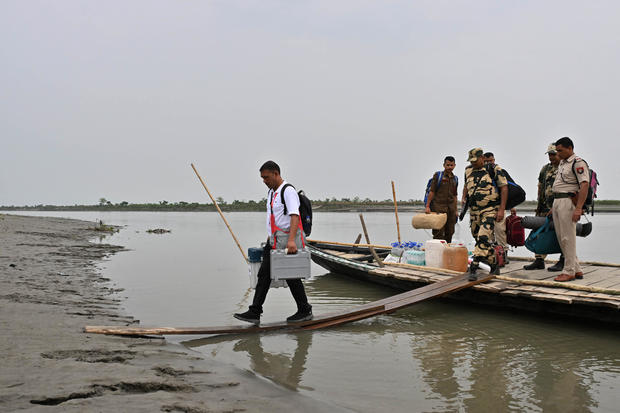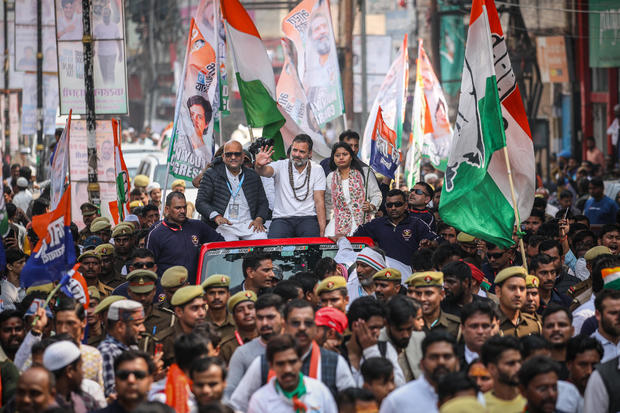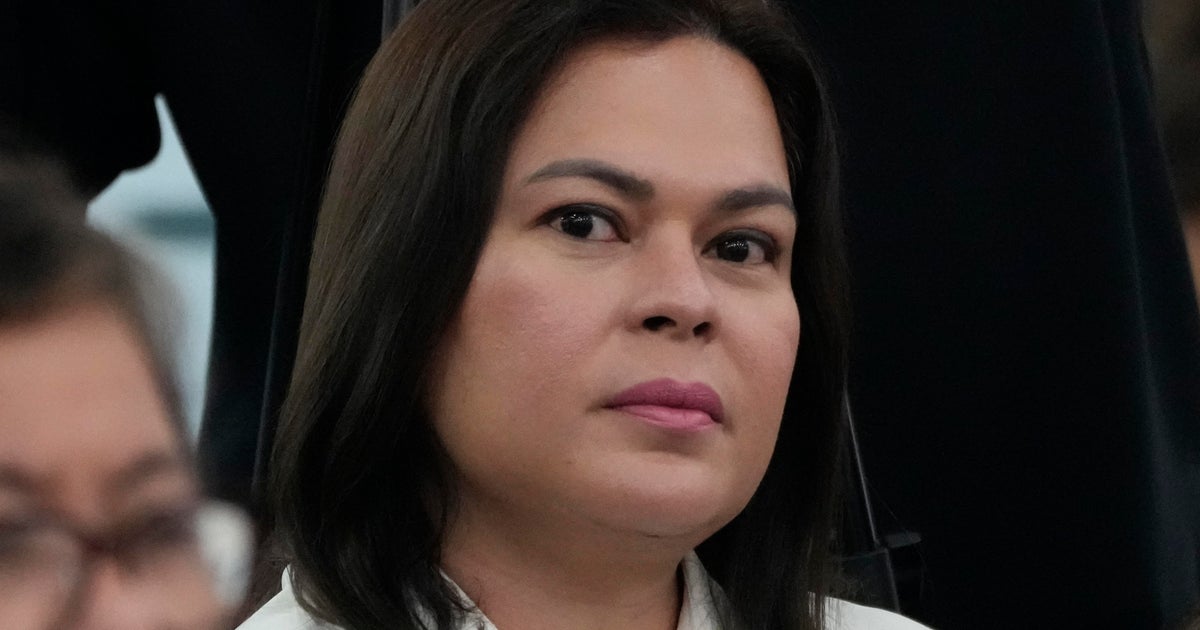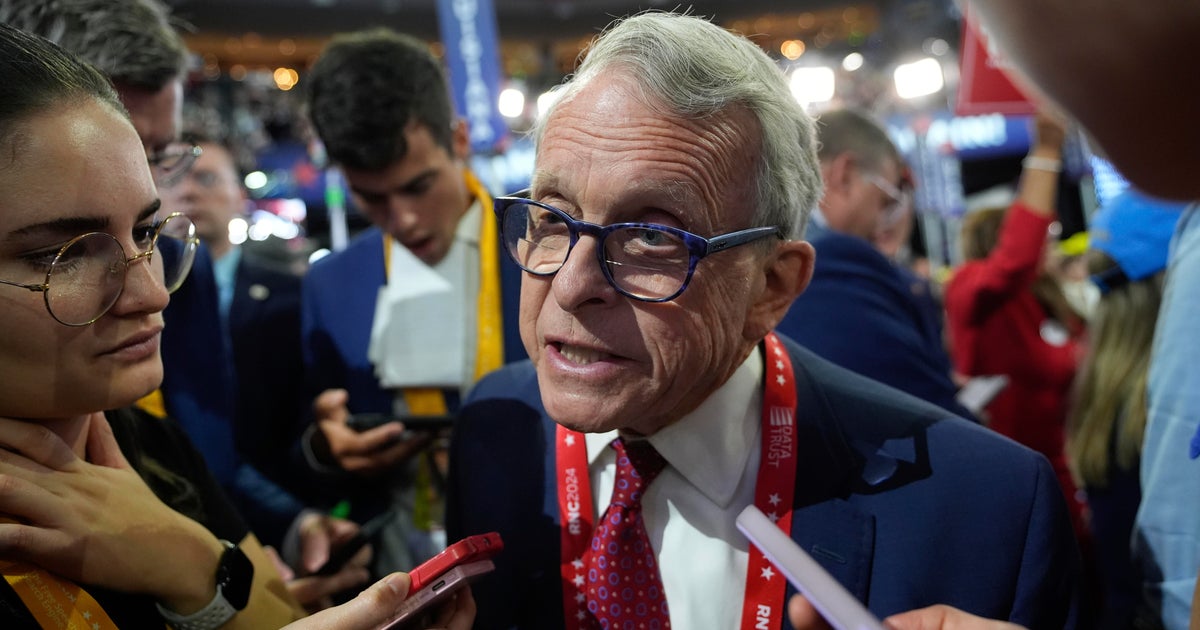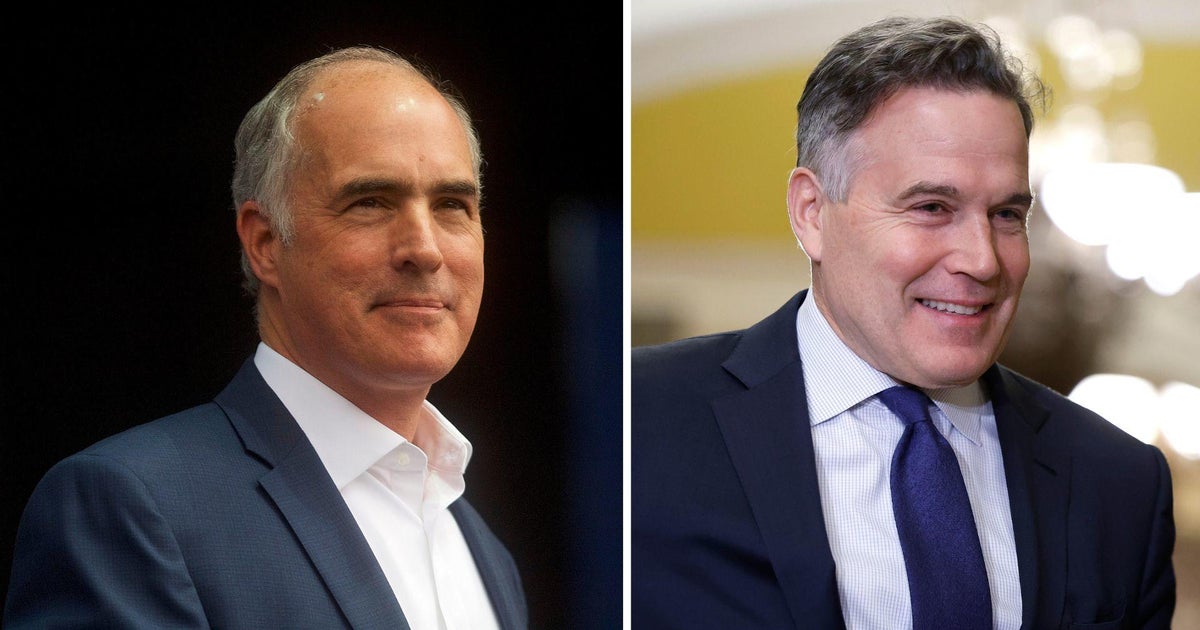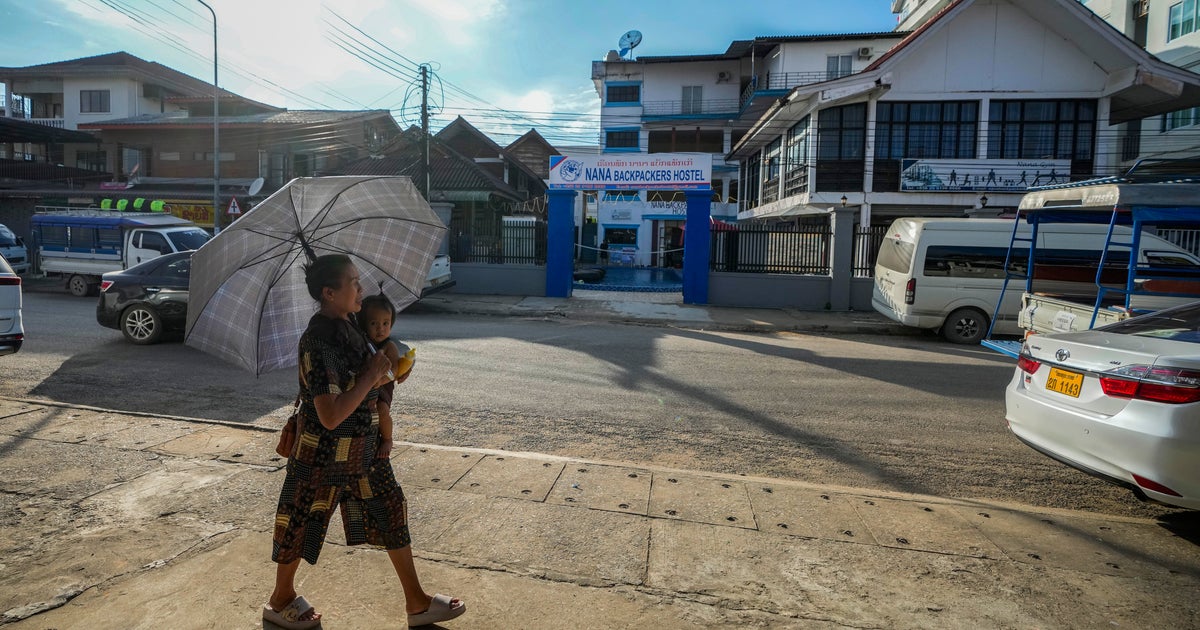CBS News
India’s 2024 elections to kick off with major implications for the world’s biggest democracy
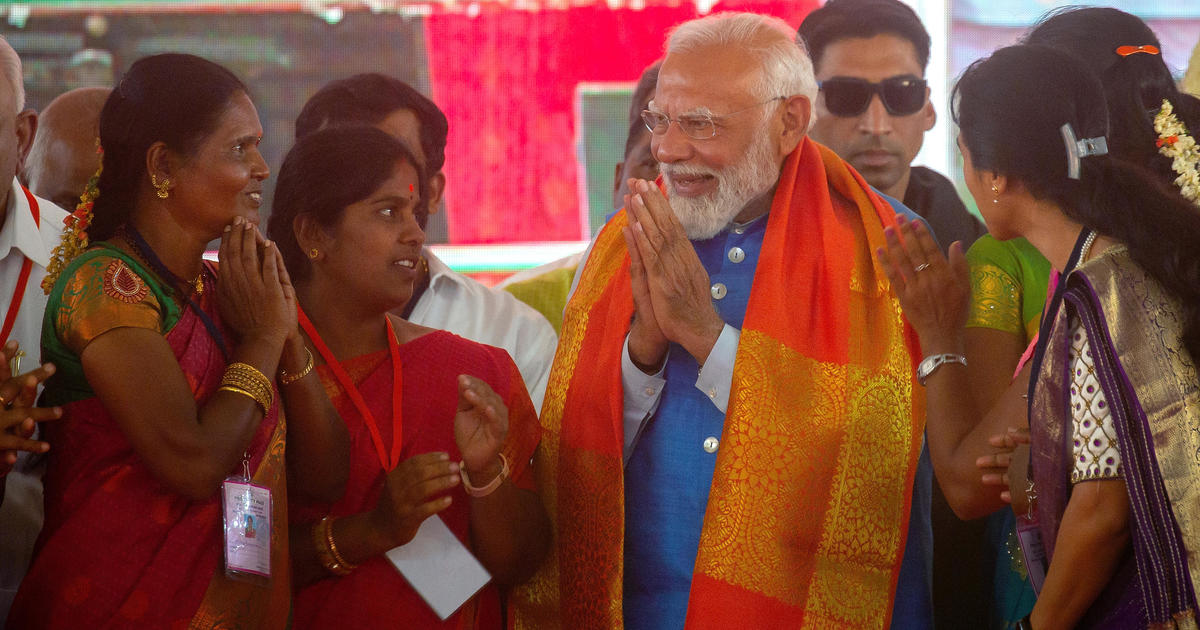
New Delhi — People will start heading to the polls in India Friday in what’s set to be the largest general election ever held anywhere in the world, with nearly 1 billion eligible voters. The elections will be held in seven phases, from April 19 until June 1.
Election officials are expected to announce the results on June 4.
Incumbent Prime Minister Narendra Modi is vying for a third term in office. Pre-election polling is illegal in India, but a survey found Modi’s overall approval rating had risen to 75% in February, a figure that jumped 15% in the last two years. His supporters would argue his popularity surged because of his work in bringing India up on the world stage as a major power, and his critics would say it’s because of his shrewd pro-Hindu and anti-Muslim policies.
Abhishek Chinnappa/Getty
But his party’s victory is not guaranteed, and there’s a lot on the line — not only for the world’s most populous nation, but for the wider tenets of democracy in what has been for decades a lauded example of political freedom in Asia.
Elections on an immense scale
India is home to more than 1.4 billion people. It has 969 million eligible voters this year, compared to 912 million when the last national election was held in 2019. By comparison, as the U.S. heads toward its own national election in November, fewer than 170 million people are likely to be eligible to cast ballots.
It takes India’s Election Commission months of preparation and some 15 million election officers and security staff to pull off the mammoth exercise in democracy.
Electronic Voting Machines (EVMs) are, in some cases, even carried on horseback or by elephant to reach remote communities, taking as long as almost seven weeks to reach the country’s far-flung corners where infrastructure can be lacking.
BIJU BORO/AFP/Getty
The commission has set up more than 1 million polling stations across India, with the objective being for every voter to have one within 1.24 miles of their home. One booth was being set up high in the Himalayan mountains and, at an altitude of 15,256 feet, it was billed as the world’s highest polling station.
The election body said it would use 5.5 million EVMs. The machines were first introduced for India’s 1982 national elections. Some opposition parties have raised concerns over the EVMs being prone to hacking and tampering, but the commission and the government have maintained that they are reliable.
Who is voting in India’s elections, and for what?
Voters will be electing Members of Parliament to fill 543 seats in the 545-seat lower house of parliament, called the Lok Sabha. The other two seats are nominated by the country’s president. The party that wins a majority in the election will form the next government and appoint one of its winning candidates as India’s prime minister.
The contest involves six national parties, 57 state parties and more than 2,500 smaller local parties. Not all political parties field candidates nationally. Combined, fewer than 12 parties hold 86% of the seats in the Lok Sabha.
One of the main political parties is Modi’s Hindu nationalist Bhartiya Janata Party (BJP), which has seen its popularity rise steadily since he won his first term in 2014.
The BJP’s biggest rival is the Indian National Congress (INC), the country’s oldest political party and one that has been in power for more than 50 of the 77 years of India’s existence as an independent nation.
ABHISHEK MISHRA/Getty
Congress leader Rahul Gandhi, whose father, grandmother and great-grandfather all served as prime ministers, is Modi’s fiercest opponent and the face of the country’s political opposition.
A “fair, transparent” election process?
Last month, the INC party accused Modi’s government of misusing the tax federal agency to stifle democracy, announcing that it had frozen the party’s bank accounts in a tax dispute case.
Former Congress leader Sonia Gandhi, the current party leader’s mother, said it was “a systematic effort to cripple the party financially.”
“We have no money to campaign. We cannot support our candidates. Our ability to fight elections has been damaged,” Rahul Gandhi said.
The Congress Party also accused “autocratic” Modi’s government of “capturing democracy through extortion and financial terrorism.”
Modi’s BJP government has denied the allegations.
Concerns have also been raised over the arrest of Arvind Kejriwal, the Chief Minister of the sprawling Delhi capital region and head of the Aam Aadmi Party (AAP), on March 21. He was taken into custody by the Enforcement Directorate (ED), India’s federal financial crimes agency, in connection with an alleged money-laundering case.
AAP has called the case against Kejriwal, filed right before the national elections, a “political conspiracy” and accused the ED of acting like a “political wing of BJP.”
Asked on March 27 about Kejriwal’s arrest and the INC’s accounts being frozen, State Department spokesperson Matthew Miller said the U.S. government wouldn’t comment on “private diplomatic discussions,” but he stressed that “we encourage fair, transparent, and timely legal processes for each of these issues.”
India called the U.S. government’s remarks about the issues “unwarranted” and “unacceptable,” and said India was proud of its independent and robust democratic institutions.
Modi and the Hindu-Muslim divide
Modi’s opponents argue that the hugely popular prime minister has done little during his decade in office to bridge the growing sectarian divide between India’s majority Hindu population and its 230 million Muslims.
Critics argue that he has, instead, indirectly endorsed sectarianism in an effort to shore up support among his Hindu nationalist base.
Some fear what a third Modi term might mean for India’s Muslims, believing his BJP is determined to turn the secular, pluralistic nation into a majority-ruled Hindu state.
There has been rising sectarian violence in India, with Muslims and Christians often the targets, for the past 10 years under BJP leadership.
Modi’s party has consistently denied allegations that it is fueling sectarianism, and it maintains that it works for the welfare of all India’s citizens, without discrimination.
CBS News
Trump makes more Cabinet picks but some top economic posts remain unfilled
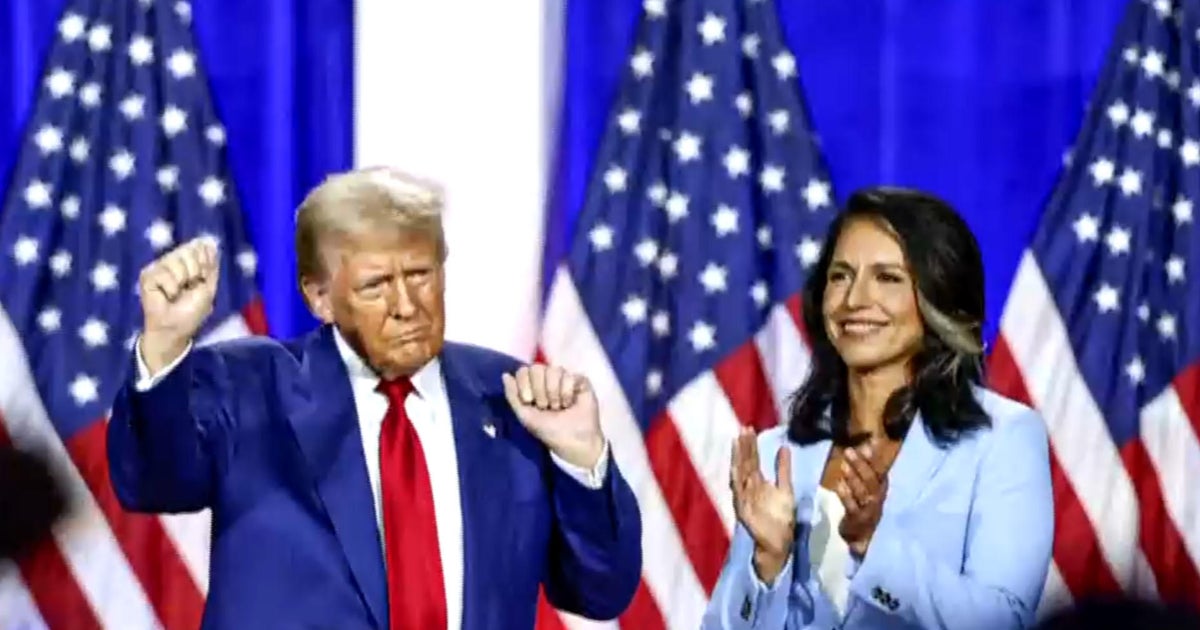
Watch CBS News
Be the first to know
Get browser notifications for breaking news, live events, and exclusive reporting.
CBS News
Open: This is “Face the Nation with Margaret Brennan,” Nov. 24, 2024

Watch CBS News
Be the first to know
Get browser notifications for breaking news, live events, and exclusive reporting.
CBS News
Popular gluten free tortilla strips recalled over possible contamination with wheat

A food company known for popular grocery store condiments has recalled a package of tortilla strips that may be contaminated with wheat, the U.S. Food and Drug Administration said Friday. The product is meant to be gluten-free.
Sugar Foods, a manufacturing and distribution corporation focused mainly on various toppings, artificial sweeteners and snacks, issued the recall for the “Santa Fe Style” version of tortilla strips sold by the brand Fresh Gourmet.
“People who have a wheat allergy or severe sensitivity to wheat run the risk of serious or life-threatening allergic reaction if they consume the product,” said Sugar Foods in an announcement posted by the FDA.
Packages of these tortilla strips with an expiration date as late as June 20, 2025, could contain undeclared wheat, meaning the allergen is not listed as an ingredient on the label. The Fresh Gourmet product is marketed as gluten-free.
Sugar Foods said a customer informed the company on Nov. 19 that packages of the tortilla strips actually contained crispy onions, another Fresh Gourmet product normally sold in a similar container. The brand’s crispy onion product does contain wheat, and that allergen is noted on the label.
U.S. Food and Drug Administration
No illnesses tied to the packaging mistake have been reported, according to the announcement from Sugar Foods. However, the company is still recalling the tortilla strips as a precaution. The contamination issue may have affected products distributed between Sept. 30 and Nov. 11 in 22 states: Arizona, California, Colorado, Florida, Georgia, Iowa, Idaho, Illinois, Indiana, Maryland, Maine, Michigan, Minnesota, North Carolina, New Jersey, Ohio, Oregon, Pennsylvania, Texas, Utah, Virginia and Washington.
Sugar Foods has advised anyone with questions about the recall to contact the company’s consumer care department by email or phone.
CBS News reached out to Sugar Foods for more information but did not receive an immediate reply.
This is the latest in a series of food product recalls affected because of contamination issues, although the others involved harmful bacteria. Some recent, high-profile incidents include an E. coli outbreak from organic carrots that killed at least one person in California, and a listeria outbreak that left an infant dead in California and nine people hospitalized across four different states, according to the Center for Disease Control and Prevention. The E. coli outbreak is linked to multiple different food brands while the listeria outbreak stemmed from a line of ready-to-eat meat and poultry products sold by Yu-Shang Foods.



